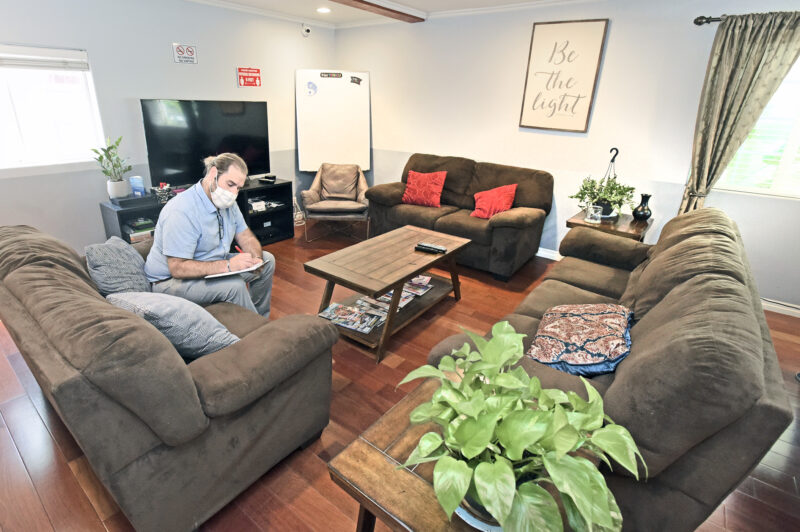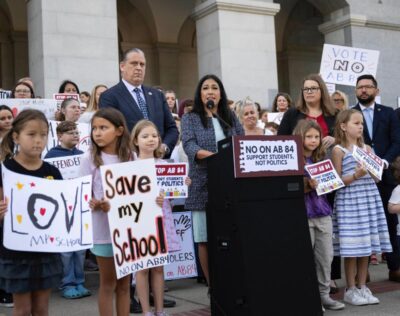The pandemic’s toll could be seen nationwide this past year, as deaths from drug overdoses hit a record high in 2020, according to the U.S. government.
The death toll jumped by more than 21,000, or nearly 30%, from 2019 to an estimated 93,331, eclipsing the record that’d just been set that year, according to provisional data from the U.S. Centers for Disease Control and Prevention’s National Center for Health Statistics.
Substance reliance problems as a whole have only been exacerbated by the pandemic, with more and more turning to treatment centers for drug- or alcohol-related addictions, according to local organizations.
Cary Quashen, the founder of Action Drug Rehabs and a nationally recognized expert in the field of addiction and drug abuse, said what the government leaders neglected to do when enacting lockdowns was think about their effect on mental health.
“Anybody that was depressed is more depressed, anybody that was drinking is drinking more, anybody that was using drugs is using more drugs,” Quashen said, noting that while he doesn’t know if there was an alternative choice to the quarantine, it just added fuel to the fire. “The whole world stopped, so it pushed more people into deeper addiction.”
It’s addiction that Quashen considers the “real pandemic,” as the backlash of the COVID-19 pandemic will be felt for much, much longer, while many have to return to reality after being isolated for so long.
“There are vaccines now for COVID — there’s no such thing as a vaccine for alcoholism and drug addiction,” he said. “There’s (medication) that will curb the urge and help you detox, but there’s no emotional vaccine for addiction.”
With the stresses and anxiety brought on by the pandemic, many addicts turned to drugs or alcohol for solace.
“There’s so much anxiety, so much drinking and so much drugging that the only thing to make them feel better is that,” Quashen added. “Then they wake up and they feel worse and they have to use more, then they feel worse again. And it’s a vicious cycle. So, we’re going to be suffering the wrath of all this isolation in COVID for many years.”

Drug overdoses and alcohol sales increase
The opioid epidemic hasn’t gone away, but rather been pushed to the side — and gotten worse — because of the COVID-19 pandemic, Quashen said.
In L.A. County alone, drug overdose deaths in 2020 are projected to increase by 41.6% once all of the reporting is complete, according to a report released by the Department of Public Health, with a 48% increase in accidental drug overdose deaths during the first five months of the pandemic compared to the same time period in 2019.
The highest accidental drug overdose death rate was reportedly associated with methamphetamine and fentanyl, which is often cut with drugs, such as heroin and other opioids.
Additionally, alcoholic beverage sales increased by around 30% in 2020 versus the same time period the prior year, according to research led by University of Southern California scientists.
While alcohol is the most socially accepted — and legal — local experts agree its prevalence has increased tremendously through the pandemic.
“We are seeing more people today for alcohol than any other drugs,” Quashen said.
Nate Mathys, a certified counselor at Healthy Living Residential Program, said he, too, has seen an increase in alcohol abuse since the onset of the pandemic.
While the center saw a dramatic reduction in admissions through the pandemic, they also saw a shift, getting more clients who were older and established, many of whom were local and simply realized they have something to lose, Mathys said.
“They realized, ‘Oh, I crossed this invisible line and I need help before I can get back to where I need to be so I can function at work,’” he added.

Local organizations find ways to help
At Healthy Living Residential Program, an in-patient drug detox and treatment center licensed by the L.A. County Department of Health Services, clients receive individualized clinically managed residential treatment.
The center offers medically assisted and monitored detoxification overseen by medical practitioners and qualified staff for smooth withdrawal.
Along with a board-certified doctor, who is on call 24/7, the clinical team is comprised of therapists, certified counselors, development technicians and auxiliary therapists for activities like yoga, art, music and more.
Therapist Slomara Calixtro and counselors work with clients in individual and group settings, providing cognitive-behavioral therapy, teaching them about triggers and mindfulness; hypnotherapy; psychoeducational therapy, teaching them the disease model of addiction and how drugs affect the brain; as well as family therapy, among others.
While clients are going through treatment, Healthy Living is also licensed to provide incidental medical services to assist with other underlying conditions, along with other case management services, such as legal, housing, education and career assistance.
“We try to do as much as possible,” said Chief Financial Officer Vardan Adjamian, adding that typically clients are permitted to stay a maximum of 45 days, while a typical stay lasts only three weeks, with half of that time taken up with detox. “Our problem is that we don’t have enough time to work with the client.”
Every minute counts, Mathys added, as they help clients to set up the foundation and structure of a routine to get them back on their feet when they leave.
However, the center said it’s also vital to remind them that there’s a world outside, so clients are given freedoms, like having time to use their electronics and bringing their small pets, along with outings to the beach, as well as to Alcoholics Anonymous meetings, for example.
What sets the facility apart from others is the level of caring and compassion shown to clients, Adjamian said.
“Addiction creates so much isolation,” Mathys said. “They don’t even realize how hungry for connection they are, and as soon as they get a taste of that connection … they have a little bit of hope when they’re here.”
“Most of us that work here have been in a client’s shoes … so that’s why we believe in love and kindness,” added Program Director Heidi Dobosi. “A lot of our clients say that they can feel that here.”
It’s this acceptance and support that makes the biggest difference for clients, as they work to go through treatment, Mathys added.

Now, Healthy Living is working toward opening a second facility to separate men and women, and hope to continue expanding its program.
Gary and Cyndi Hall, co-founders of Hollywood Impact Studios Rehabilitation & Vocational Training Center, a Castaic center working to vocationally train people coming out of jail, prison and long-term drug recovery programs, had to halt in-jail programming during the pandemic, and they have since heard the impact their programs have had upon their return.
While not a drug rehabilitation center, the nonprofit is often the next stop for many of these people.
“You can’t work on a profession if you’re still really fighting with drugs … (so) we get our guys usually after they have 90 days to six months of sobriety,” Gary said.
It’s finding the balance between training and mentoring that allows the nonprofit to continue to prevent participants from backtracking and returning to jail or drugs.
The program first began in 2009 as a faith-based outreach program, where Gary, who has a background in the television industry, and Cyndi, who has a background as a studio musician, could take the applicable work skills learned in the entertainment industry and turn them into a class for inmates in the jails to prepare them to re-enter the workforce.
Soon, the Halls also began supporting families of those who were incarcerated, as well as recently released inmates, mentoring them through life to truly break the cycle of incarceration and addiction.
In the fall of 2019, the vocational training center was opened in Castaic, a 35-acre property leased from L.A. County that allows the nonprofit to provide hands-on vocational training courses, such as roofing, construction, fire prevention and brush abatement.
Because classes were held outdoors, many were able to continue, providing participants with some of the only opportunities to be together in the midst of the pandemic, which Gary said was evidently helpful for them.
In-jail programming, however, was halted completely for more than a year. “We have been less effective in helping our guys because we’re not able to reach them in the jail,” Gary added.
Even so, the nonprofit worked to stay connected with its members, transitioning alumni program meetings to virtual, which was beneficial for some who were out of the area and had the opportunity to join from afar, but hindered others who weren’t as technically savvy.
Since then, Hollywood Impact Studios has been given the green light to resume its programs at the jail, which L.A. County Sheriff’s Department officials have told them has benefited more than just their students, reminding inmates that “there’s hope” and assistance out there, Gary said.
“At that time, they couldn’t even have visitors, so to see somebody from the outside, was great,” Gary added. “They said it immediately uplifted morale, it helped with discipline. We were only allowed 12 people in our class, but it had a ripple effect throughout South Facility and beyond.”
If you or a loved one has a problem with drugs or alcohol, local experts advise not turning a blind eye to it. There’s help out there, with a number of resources available to SCV residents and beyond. Substance Abuse and Mental Health Services Administration’s National Helpline, 1-800-662-HELP (4357), is a confidential, free, 24-hour-a-day, 365-day-a-year information service, in English and Spanish, for individuals and family members facing mental and/or substance use disorders. For more information on Healthy Living Residential Program, call 661-536-5562 or visit healthylivingtreatment.com. For more information on Hollywood Impact Studios, visit hollywoodimpactstudios.com. For more information on Action Drug Rehabs, call 800- 367-8336 or visit actiondrugrehab.com.









